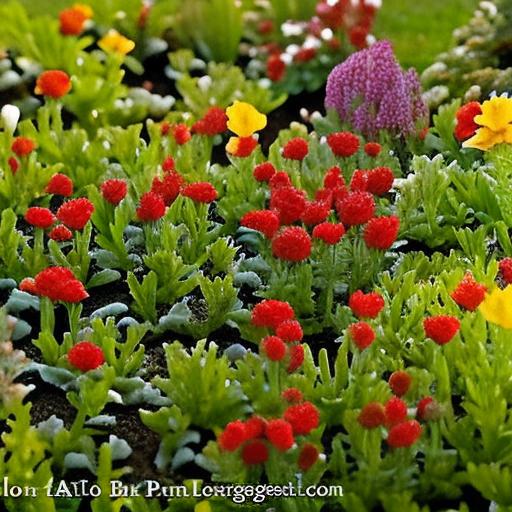Keeping chickens in your garden has become increasingly popular in recent years. More and more people are realizing the benefits of having their own flock of chickens, from the fresh eggs they provide to the natural pest control and fertilizer they offer for your garden. In this article, we will explore the advantages of backyard chicken keeping and provide tips on how to successfully integrate chickens into your garden.
Key Takeaways
- Keeping chickens in your garden can provide numerous benefits, including fresh eggs and natural pest control.
- Before getting chickens, it’s important to understand the potential problems and responsibilities that come with raising them.
- Preparing your garden for chickens involves creating a safe and secure coop and run area, as well as fencing off any areas you don’t want them to access.
- When designing your chicken coop and run, consider factors such as size, ventilation, and predator protection.
- Training your chickens can help them become more comfortable with you and their surroundings, making them easier to handle and care for.
Understanding the Problem
Factory farming and store-bought eggs have become a growing concern for many people. The conditions in which chickens are raised in these facilities are often cramped and unsanitary, leading to health issues for the animals and potentially lower quality eggs. Additionally, store-bought eggs may be treated with antibiotics or hormones, which can have negative effects on human health.
Keeping chickens in your garden can be a solution to these problems. By raising your own chickens, you have control over their living conditions and can ensure that they are treated humanely. You also have the peace of mind knowing exactly where your eggs come from and how they were produced.
Benefits of Keeping Chickens
There are numerous benefits to keeping chickens in your garden. One of the most obvious benefits is the fresh eggs they provide. Homegrown eggs are often considered to be superior in taste and quality compared to store-bought eggs. They also have a higher nutritional value, as they are typically laid by hens that have access to a varied diet.
Chickens also offer natural pest control for your garden. They love to eat insects, slugs, and other pests that can damage your plants. By allowing your chickens to roam freely in your garden, you can reduce the need for chemical pesticides and create a more balanced ecosystem.
Furthermore, chickens produce high-quality fertilizer for your garden. Their droppings are rich in nitrogen, phosphorus, and potassium, which are essential nutrients for plant growth. By incorporating chicken manure into your compost or directly applying it to your garden, you can improve soil fertility and promote healthy plant growth.
Preparing Your Garden
Before bringing chickens into your garden, it is important to prepare the space for them. Start by removing any toxic plants that could be harmful to the chickens if ingested. Some common plants that are toxic to chickens include azaleas, rhododendrons, and lilies. It is also a good idea to create designated areas for the chickens to roam, such as a fenced-in chicken run or a section of your garden that is off-limits to them.
Chicken Coop Design
A well-designed chicken coop is essential for the health and safety of your flock. When designing your coop, consider factors such as size, ventilation, and nesting boxes. Chickens need enough space to move around comfortably, so make sure your coop is large enough to accommodate the number of chickens you plan to keep. Good ventilation is important to prevent the buildup of ammonia from chicken droppings, which can be harmful to their respiratory health. Finally, provide nesting boxes for your hens to lay their eggs in a safe and comfortable environment.
It is also crucial to predator-proof your coop. Predators such as raccoons, foxes, and rats can pose a threat to your chickens. Make sure your coop has secure locks on all doors and windows, and consider burying wire mesh around the perimeter of the coop to prevent predators from digging their way in.
Chicken Run Design

In addition to a coop, it is important to provide your chickens with a designated outdoor space where they can safely roam and exercise. This area is known as a chicken run. When designing your chicken run, consider factors such as size, protection from predators, and access to fresh grass and sunlight.
The size of your chicken run will depend on the number of chickens you have and the amount of space available in your garden. As a general rule of thumb, allow at least 10 square feet per chicken in the run. Make sure the run is securely fenced to prevent predators from entering and chickens from escaping.
While it is important to provide a safe and secure chicken run, allowing your chickens to free-range in your garden can also have its benefits. Free-ranging chickens have access to a wider variety of food, including grass, insects, and worms. They also help to aerate the soil and distribute fertilizer more evenly throughout your garden.
Fencing Your Garden
To keep your chickens in and predators out, it is important to fence your garden. The type of fencing you choose will depend on your specific needs and budget. Some popular options include chicken wire, electric fencing, and welded wire mesh.
Chicken wire is a common choice for backyard chicken keepers due to its affordability and versatility. However, it may not be strong enough to keep out determined predators such as raccoons or dogs. Electric fencing can be an effective deterrent for larger predators, but it requires regular maintenance and may not be suitable for all garden setups. Welded wire mesh is a more secure option that provides better protection against predators, but it can be more expensive.
Natural Deterrents
In addition to fencing, there are other natural deterrents you can use to protect your chickens from predators. Motion-activated sprinklers can startle and deter animals that come too close to your coop or chicken run. Predator decoys, such as fake owls or snakes, can also help to scare away potential threats.
Keeping your garden clean is another important aspect of predator prevention. Remove any fallen fruit or food scraps that could attract predators to your garden. Regularly clean out your coop and chicken run to minimize odors that could attract unwanted visitors.
Training Your Chickens
Training your chickens is an important part of backyard chicken keeping. Start by handling your chickens regularly to get them used to being touched and held. This will make it easier to perform routine health checks and handle them when necessary.
To teach your chickens to return to their coop at night, establish a routine and consistently reward them with treats when they go inside. Over time, they will learn to associate going into the coop with receiving a reward.
Conclusion and Final Thoughts
Keeping chickens in your garden can be a sustainable and rewarding hobby. Not only do you have a constant supply of fresh eggs, but you also contribute to a more sustainable food system by reducing your reliance on factory-farmed eggs. Chickens provide natural pest control and fertilizer for your garden, helping to create a healthier and more productive growing environment.
Before bringing chickens into your garden, make sure to prepare the space properly by removing toxic plants and creating designated areas for them to roam. Design a well-ventilated chicken coop that is predator-proof, and provide a safe and functional chicken run for your flock. Fence your garden to keep your chickens in and predators out, and consider using natural deterrents for added protection. Train your chickens to ensure their safety and establish a routine that works for both you and your flock.
By considering these factors and following the tips provided in this article, you can successfully integrate chickens into your garden and enjoy the many benefits they offer.
If you’re looking for more information on keeping chickens out of your flower beds, you might also be interested in this article on converting a shed into a chicken coop. It provides helpful tips and ideas for creating a large chicken coop that can effectively keep your feathered friends contained and away from your precious flowers. Check it out here for some great insights and inspiration!
FAQs
What are the benefits of keeping chickens?
Chickens can provide fresh eggs, meat, and fertilizer for gardens. They also make great pets and can help control pests in the yard.
Why do chickens like to dig in flower beds?
Chickens are natural foragers and enjoy scratching and digging in the soil to find insects and other tasty treats. Flower beds provide a soft and fertile area for them to do so.
How can I keep chickens out of my flower beds?
There are several methods to keep chickens out of flower beds, including using physical barriers like fencing or netting, planting chicken-resistant plants, and providing designated areas for chickens to forage.
What are some chicken-resistant plants?
Some chicken-resistant plants include lavender, rosemary, marigolds, and snapdragons. These plants have strong scents or prickly leaves that deter chickens from digging or pecking at them.
Can chickens harm my flowers?
Yes, chickens can harm flowers by digging up bulbs, scratching at roots, and pecking at leaves and blooms. This can cause damage or even kill the plants.
What are some other tips for keeping chickens in a backyard?
Other tips for keeping chickens in a backyard include providing a secure coop and run, keeping the area clean and free of pests, and providing fresh food and water daily. It is also important to check local regulations and obtain any necessary permits before keeping chickens.
Meet Walter, the feathered-friend fanatic of Florida! Nestled in the sunshine state, Walter struts through life with his feathered companions, clucking his way to happiness. With a coop that’s fancier than a five-star hotel, he’s the Don Juan of the chicken world. When he’s not teaching his hens to do the cha-cha, you’ll find him in a heated debate with his prized rooster, Sir Clucks-a-Lot. Walter’s poultry passion is no yolk; he’s the sunny-side-up guy you never knew you needed in your flock of friends!







